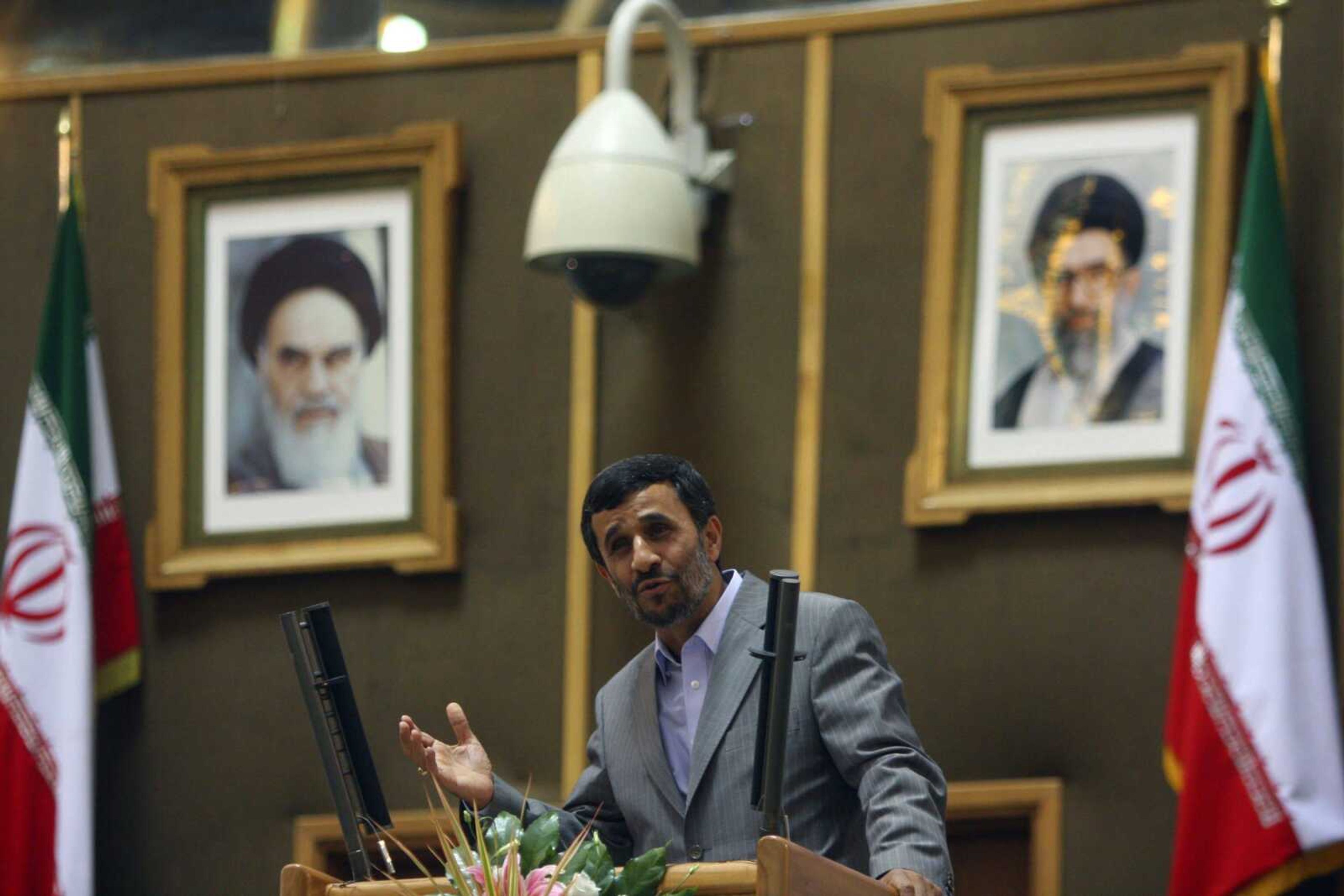Iran opposition leader accused of being U.S. agent
TEHRAN, Iran -- A top aide to Iran's all-powerful leader has accused the country's main opposition leader of being an American agent who should be tried for treason, increasing the pressure on reformists disputing the outcome of last month's presidential election...
TEHRAN, Iran -- A top aide to Iran's all-powerful leader has accused the country's main opposition leader of being an American agent who should be tried for treason, increasing the pressure on reformists disputing the outcome of last month's presidential election.
There was no immediate reaction from Mir Hossein Mousavi to the accusation in an editorial Saturday in the conservative daily newspaper Khayan. Mousavi, who claims he was fraudulently deprived of victory in the June 12 election that gave Mahmoud Ahmadinejad a second term, has not been seen in public in recent days.
The editorial, by Hossein Shariatmadari, a top aide to supreme leader Ayatollah Ali Khamenei, raised the possibility that Mousavi could be arrested and charged like many other pro-reform figures.
The accusation appeared to be part of an effort by the leadership to portray the opposition and those behind the street unrest as agents working for foreign powers.
A detained Iranian employee of the British Embassy has also been charged with harming Iran's national security, his lawyer said Saturday, in a step certain to increase tension with Europe.
In the editorial against Mousavi, Shariatmadari wrote, "It has to be asked whether the actions of [Mousavi and his supporters] are in response to instructions of American authorities."
He added that Mousavi was trying to "escape punishment for murdering innocent people, holding riots, cooperating with foreigners and acting as America's fifth column inside the country" and called for Mousavi and former reformist president Mohammad Khatami to be tried in court for "horrible crimes and treason."
The semi-official news agency Fars reported that another prominent reformer, former vice president Mohammad Ali Abtahi, had "confessed that he has provoked people and students to anarchy and riots and velvet revolution." It also said Mohammad Ghoochani, editor of the Etemad-e-Melli newspaper, had confessed to receiving training overseas to "organize a velvet revolution."
The phrase refers to the huge demonstrations in Czechoslovakia in 1989 that forced the Communist regime to abandon power. Western-oriented intellectuals and activists were at the heart of those demonstrations.
Iran's frequent use of the phrase underlines authorities' contention that the postelection protests were fomented by foreign influence. Iran blames the United States and Britain in particular.
Abtahi was a vice president under Khatami. Fars did not give further details about what punishment Abtahi and Ghoochani could face or about their confessions.
Their families have rejected the charges as baseless saying confessions obtained under pressure were worthless.
Mehdi Karroubi, a defeated reformist presidential candidate, visited the family of both Abtahi and Ghoochani on Saturday calling their detention "illegal."
"These actions destroy public trust. It's very dangerous. We are facing a cultural and religious catastrophe with extensive dimensions," Karroubi told the families.
Some human rights groups have raised concerns that people detained in the postelection turmoil could be forced into making bogus confessions under torture or other duress, and reformists have said purported confessions since the post-election turmoil were worthless.
Soon after the unrest began, Iran detained nine local members of the British Embassy staff on accusations of fomenting unrest. All but one were released and on Saturday his lawyer, Abdolsamad Khorramshi, told The Associated Press he had been charged with "acting against national security."
The lawyer identified his client as Hossein Rassam, a political analyst at the embassy, and expected a trial soon.
Britain's Foreign Office could not confirm that an embassy employee had been charged and said it was "seeking urgent clarification from the Iranian authorities."
Even before the news, there had been calls in Europe for tougher action against Tehran. Britain is pressing for members of the European Union to pull their ambassadors out of Tehran to protest the staffers' arrests.
About a dozen prominent reformist leaders have been detained since protests began after the election, lawyer Saleh Nikbakht, who represents a number of them, told the AP. He said they had been charged with "agitating against the ruling system and acting against national security."
Newsweek correspondent Maziar Bahari, a dual Iranian-Canadian citizen, also in custody, faces the same charge, the lawyer said.
Police say more than a thousand people have been detained in total and 20 "rioters" killed during the violence. Eight members of the paramilitary Basij militia tasked with putting down the protests have also been killed.
There have been no street protests since Sunday, but Mousavi has maintained his opposition to the results, issuing a defiant statement against the government Wednesday, saying "A majority of the people -- including me -- do not accept its political legitimacy."
Iran's ruling clerics have called the elections "pure" and "healthy" following the supreme leader's declaration that the results would stand.
Only one of the top clerics in the religious center of Qom, however, has congratulated Ahmadinejad on his re-election. Other Qom clerics have even openly supported Mousavi, condemned the government's tactics against demonstrators and expressed doubts about the election results.
"A large portion of the people have not been convinced over the ambiguities in the election. ... Due to the lack of public support, the government may face legal and civil problems and a lack of competency," Grand Ayatollah Youssef Saanei said in a statement on his Web site Friday.
Connect with the Southeast Missourian Newsroom:
For corrections to this story or other insights for the editor, click here. To submit a letter to the editor, click here. To learn about the Southeast Missourian’s AI Policy, click here.








